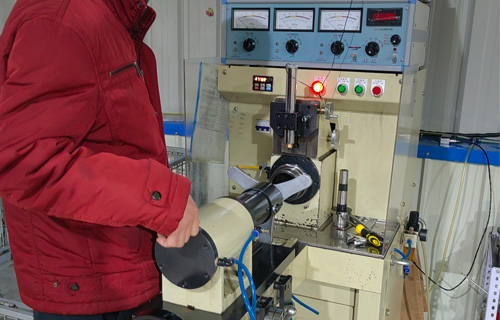
Jul . 25, 2024 04:29 Back to list
High Precision Deep Groove Ball Bearings Manufacturing Plant for Reliable Performance and Durability
The Significance of Deep Groove Ball Bearing Factories in Modern Industries
Deep groove ball bearings are a cornerstone of modern mechanical systems. These precision-engineered components play a crucial role in various applications, ranging from household appliances to industrial machinery. The manufacturing of deep groove ball bearings involves meticulous engineering and stringent quality control, making the factories that produce these bearings vital for supporting industrial progress and technological advancement.
Understanding Deep Groove Ball Bearings
Deep groove ball bearings are designed to accommodate both radial and axial loads, making them highly versatile. Their design features a simple structure, which includes an inner and outer ring, a cage, and a set of balls that reduce friction. This unique configuration allows them to operate smoothly at high speeds, which is why they are widely used in motors, electrical equipment, and automotive applications. The ability of these bearings to function under varying conditions and their durability makes them essential components in numerous industries.
The Role of Factories in Manufacturing
Factories dedicated to producing deep groove ball bearings serve as the backbone of supply chains in various sectors. The manufacturing process typically includes several stages forging, machining, heat treatment, and surface finishing. Each step requires state-of-the-art machinery and skilled labor to ensure precision and quality.
1. Forging and Machining The initial stage involves forging raw materials, often high-quality steel, into the required shapes. Following this, machining processes are employed to achieve the precise dimensions necessary for optimal performance. Advanced CNC (Computer Numerical Control) technology is commonly used in this stage to ensure accuracy.
2. Heat Treatment After machining, the bearings undergo heat treatment processes that enhance their hardness and overall resilience. This treatment is crucial as it directly affects the bearing's lifespan and load capacity. Factories often use controlled environments to guarantee consistent results.
deep groove ball bearing factory

3. Surface Finishing The final stages involve finishing processes that improve the surface quality of the bearings. This can include polishing, coating, or applying lubricants. A well-finished bearing reduces wear and friction, contributing to longer service life and improved performance.
Quality Control and Testing
Quality control is paramount in the production of deep groove ball bearings. Factories implement rigorous testing protocols to ensure that each bearing meets industry and international standards. This includes dimensional checks, load tests, and life cycle evaluations. By employing advanced testing equipment and methodologies, manufacturers can ensure that their products perform reliably under various operating conditions.
Environmental Considerations
In recent years, deep groove ball bearing factories have also begun to prioritize sustainability. Many manufacturers are adopting eco-friendly practices, such as reducing waste, recycling materials, and using energy-efficient machinery. Adopting sustainable practices not only helps to mitigate environmental impact but also enhances the reputation of manufacturers in an increasingly eco-conscious market.
Conclusion
The factories that produce deep groove ball bearings are crucial players in the global manufacturing landscape. Their ability to produce high-quality, durable bearings affects countless industries, ensuring that machines run smoothly and efficiently. With advancements in technology and a growing emphasis on sustainability, these factories continue to evolve, meeting the ever-increasing demands of modern engineering and contributing to the innovation that drives our world forward. As we rely more on efficient machinery and automated systems, the importance of quality deep groove ball bearings—and the factories that manufacture them—cannot be overstated.
Latest news
-
common-failures-in-thrust-ball-bearings-and-solutions
NewsAug.22,2025
-
how-tapered-roller-bearings-can-take-shock-loads
NewsAug.22,2025
-
angular-bearings-in-high-precision-spindles
NewsAug.22,2025
-
the-impact-of-misalignment-on-cylindrical-roller-bearing-performance
NewsAug.22,2025
-
the-role-of-cage-design-in-deep-groove-ball-bearing-durability
NewsAug.22,2025
-
the-impact-of-material-quality-on-machinery-bearings-lifespan
NewsAug.22,2025
